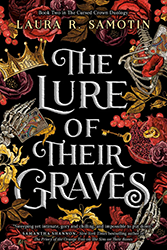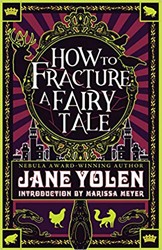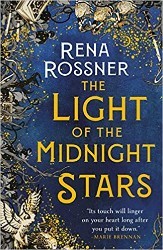Our lives are built on stories. They start from a young age, our parents reading to us from our favorite books and our friends whispering tales in the dark. These stories serve as a foundation for our knowledge of the world, as well as a shield or an escape.
The Maiden and Her Monster by Maddie Martinez explores the significance of stories in relation to faith, politics, love, and sense of self. Malka, the protagonist, is propelled by the stories of her youth when the reader meets her as she sets out to find a monster. For five years, any girl who ventured into the forest known as Mavetéh was taken by a monster, what her town calls the Rayga — including Malka’s best friend, Chaia. But after Malka’s mother is accused of killing a member of the church with Kefesh, a kind of Yahadi magic, Malka promises to find the monster in exchange for her mother’s life. She does not expect to survive the forest, nor does she expect to learn the secrets of Kefesh from the infamous golem, a character in the stories she grew up hearing. But her need to protect her mother and sisters overpowers any fear that may arise. Side by side with her steadfast friend, Amnon, Malka must traverse the woods’ dangers to discover the culprit of her town’s misfortunes, attempting to save those she holds most dear in the process.
An exciting and heartwarming debut, The Maiden and Her Monster draws inspiration from Jewish history and mysticism to create a world that feels familiar and characters that captivate. The book, though set in a world akin to the seventeenth-century’s Pale of Settlement, touches upon themes that are just as relevant to our world today — corruption in government, the use of faith to justify violence, fearing others simply because they are different. It feels particularly potent that the book discusses how stories can be manipulated as means to an end. Towards the end of the novel, Malka comes to the realization that stories hold this immense power: “…stories are not merely stories at all. They are justifications. Ones we tell over and over to understand the decisions we make and those we will make.”
But stories can also be magic. In the myth of the golem, words and prayer are what brings the creature to life: the inscription of the word, emet, on its forehead marks the unrelenting belief that went into its creation. Malka learns the power of words — and the reimagining of those words — to create Kefesh, bending the world to her will in miraculous ways. By wielding Kefesh, Malka feels what it is like to be powerful; as the eldest daughter, she has always been victim to her father’s anger, to the pressure of protecting her loved ones, and to the acceptance that her life would be ordinary and planned. But this newfound power alerts Malka to the possibility of a new future, one where she can create something out of nothing, where she can heal impossible wounds. A future where she is allowed to want more. Infuriatingly, that want comes in the form of the monster she has been taught to hate.
This book speaks to the power of stories to create, to destroy, and to change. It explores the idea that stories are how we exist in the world; for the Jewish people, tales of exile and faith remind us that we remain, and that we carry on memories and traditions for generations to come.
Isadora Kianovsky (she/her) is the Membership & Engagement Associate at Jewish Book Council. She graduated from Smith College in 2023 with a B.A. in Jewish Studies and a minor in History. Prior to working at JBC, she focused on Gender and Sexuality Studies through a Jewish lens with internships at the Hadassah-Brandeis Institute and the Jewish Women’s Archive. Isadora has also studied abroad a few times, traveling to Spain, Israel, Poland, and Lithuania to study Jewish history, literature, and a bit of Yiddish language.





